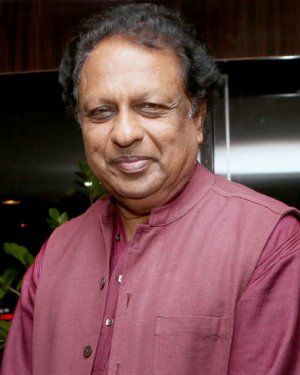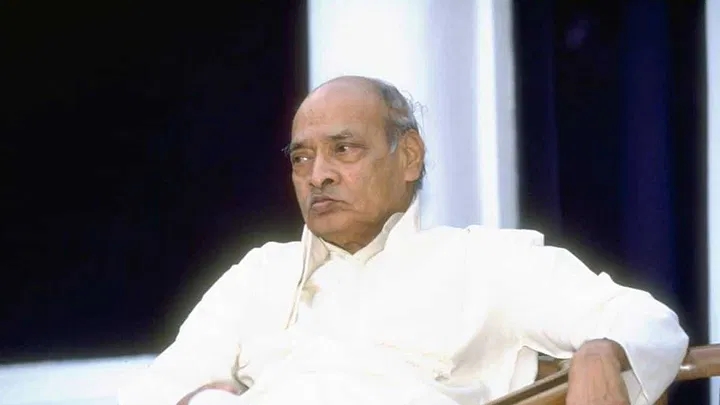
PVNR: The Unsung Builder Of Post-Cold War India
 Later prime minister PV Narasimha Rao
Later prime minister PV Narasimha Rao
I was in New York on the day Rajiv Gandhi was assassinated. The news was broken to me by the then UN Secretary General Kofi Annan who saw me at the UN restaurant enjoying my lunch. He realised that I had not heard the tragic news. He came up to my table, put his hand on my shoulder and asked me to go and watch CNN outside and walked off. I rushed out to see the scenes of the bombing which killed the prospective Prime Minister of India.
As it happened, I had an appointment with Dr Viswanathan Talluri, a cardiologist and we inevitably talked about the tragic event and a possible successor. I said that Sonia Gandhi might be an obvious choice and if there would be any problem about that, PV Narasimha Rao might be chosen. Dr Talluri said: “Narasimha Rao? Please tell him not to be Prime Minister. I know his heart. He cannot take the strain!”
He told me that he was present when Rao had an open heart surgery in the US and it was touch and go and he was lucky to have survived the surgery. I said that power might be the best medicine and we laughed about it and the rest was history. Rao not only became Prime Minister, but also served a full term and faced some of the most excruciatingly tense moments. Dr Talluri himself passed away within a year!
Such was the man, the first accidental Prime Minister of India, who became the architect of the post-Cold War India. In partnership with Dr Manmohan Singh, he liberalised and globalised the Indian economy. He did it in his characteristically quiet way, appearing to be indecisive and shy.
India’s GDP grew at 11% and made it a destination for global trade and investment. The huge Indian market brought the industrialised world to our doorstep. I remember that all the eyes were on him when I accompanied him to the Davos World Economic Forum. India became close to the US when the whole world was waiting to be friendly with the only surviving super power and Russia’s Yeltsin was dancing to the tune of the US.
Rao distanced himself from Russia without losing its support because of our heavy involvement in defence matters with Russia. He opened an Embassy in Israel to gain a foothold in the powerful Jewish lobby in the US. He maintained contacts with Pakistan despite the spike in cross border terrorism.
He signed the agreement on maintaining peace and tranquility on the Line of Actual Control between India and China. He crafted India’s “Look East” policy and cultivated Iran. He rewrote India’s foreign policy agenda on the basis of strategic autonomy.
Back home, he had severe challenges as a result of the phenomenal growth of the Bharatiya Janata Party, but he maintained cordial relations with the opposition, which supported him on foreign policy.
When there was a serious challenge from Pakistan at the Human Rights Commission in Geneva, he made the Leader of the Opposition, Atal Bihari Vajpayee as the leader of the Indian delegation. Pakistan made an all-out effort to get a resolution passed on Kashmir in the Security Council in the expectation that, in the absence of the Soviet veto, it might be possible to internationalise Kashmir. We fought Pakistan tooth and nail and not a word came out from any of the UN bodies. Rao made sure that we had the support of Delhi at every step of the battle.
Rao dominated a great part of my official career, beginning with New York through Rangoon, Suva, New Delhi, New York again and Nairobi. I was with him at several bilateral and multilateral meetings in far off places, not to speak of the innumerable meetings at the Prime Minister's residence over vada and coffee.
I recall his first visit to New York when he was new to external affairs and to the central government itself. His erudition and familiarity with world affairs was evident even then, but it was reported that he had expected to be assigned an economic ministry rather than external affairs and that he hesitated to ask Prime Minister Indira Gandhi for a change for fear that he might be suspected of seeking financial gains.
He was cautious and reticent during his first visit to the United Nations, but when he came a second time in six months, he had grown fully into the job and appeared to enjoy the international scene.
Rao's much admired analytical mind appeared to be a handicap in his conversations with his foreign counterparts. Much is said in diplomatic conversations that can be called 'mantras', which cannot be analysed beyond a point. Moreover, he tended to be the devil's advocate quite often and argued the contrary point with his interlocutors, giving them the impression that he was not on their side. When the ASEAN countries were pitted against Vietnam, he appeared to argue the ASEAN case to the Vietnamese and the Vietnamese case to ASEAN.
In diplomatic conversations, it may not always be productive to rationalise issues as the purpose of the conversation is to seek support for a point of view. In internal discussions, he was brilliant as he weighed pros and cons very well and brought out points his officials had not thought of. There was no unquestioning acceptance of briefs and speeches.
Rao had no time for small talk or social courtesies, particularly with those who worked with him. I remember walking into his hotel room in Managua, where we had assembled from different places, some from New Delhi and some from New York. He started the meeting as though we were all living in Managua together. Not even an enquiry as to how everybody was and where we came from.
I was supposed to join him in Burkina Faso, from where he issued the famous J&K statement, but I was seriously hurt in an armed attack in Nairobi and could not go. I believe he was very concerned and asked the foreign secretary to extend all help, but did not care to make a call, which would have made a big difference to me. Someone like Inder Gujral would have gone out of his way to make such gestures even if he did not know the affected colleague personally.
Indecisiveness was part of Rao's make up, but it was also his instrument in dealing with people and issues. He could stick to his guns and not change his position. I was called in when he was the Prime Minister just before I was to leave for Bali to lead the official delegation to a Ministerial Meeting of the Nonaligned Movement. The issue was Myanmar’s effort to get back into the Movement, from which it had walked out in Havana in 1979. Rao told me categorically that we should not allow Myanmar to return as long as it was under a military dictatorship.
Many other countries, including ASEAN were willing to let Myanmar in for political reasons and we were in danger of being isolated. My argument that there were many dictators in the Movement and that as a neighbour, India had to deal with the dictators in Yangon did not impress him.
He would not relent and I made sure that Indonesia declared lack of consensus without our having to expose our position. Later, we thought it prudent to recognise and deal with the military junta.
When I was 'invited to leave' Fiji on account of our opposition to discrimination against Fiji Indians in 1989, Rao was still the Minister of External Affairs, but he let Natwar Singh deal with the matter. But he found himself unemployed soon enough and he invited me to his quiet home, together with some former foreign secretaries and others for a full discussion on Fiji.
He asked many questions and discussed possible solutions and I left for New York the next day with the impression that he was a lonely man. He had told me that his books were already shipped to Hyderabad and he would also follow. By the time I returned from New York after a couple of weeks, Rao was Prime Minister.
Rao was undoubtedly one of the best Prime Ministers of India despite his many handicaps, but he did not get the kind of recognition and reverence he deserved.
The demolition of the Babri Masjid and charges of political corruption haunted him till the very end, eclipsing many of his achievements.
RN Kao, the spy chief of India, remarked soon after Rao left office: “Perhaps, from the point of view of history, we are living too close to Narasimha Rao's times, to be able to do full justice to him.”
Now that we are celebrating his birth centenary, there should be a reappraisal of his historic contribution to the country.
